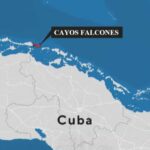The post ZK Voting Push After Judge Fire; $10B by 2030 appeared com. Ethereum co-founder Vitalik Buterin has called for the use of zero-knowledge (ZK) cryptography to enable secret-ballot voting in governance and judicial systems. He said anonymity can help protect judges and lawmakers from retaliation. His comments came after a tense case in South Carolina. Circuit Court Judge Diane Goodsteins house burned down following weeks of threats linked to her election-related ruling. The incident reignited debate over public safety and judicial independence. Sponsored Sponsored Vitalik Calls for Secret Governance Voting Buterin argued that in an era of easy physical retaliation, anonymity should extend to judges, lawmakers, and international bodies such as the UN General Assembly. Investigators have stated there is no sign of arson, according to a TIME report. The investigation, however, remains active as authorities continue to gather evidence. Statement of Vitalik | Farcaster One of my more radical beliefs is that many more classes of governance actions should be anonymous or secret ballot. Ive advocated for secret-ballot UN General Assembly votes before. This situation is a good argument for judges identities being hidden when they make their rulings. The function of a judge is to rule according to the facts as interpreted through their conscience, not to be accountable to violent mobs. Vitalik Buterin Market Growth and Ethical Debate Zero-knowledge proofscryptographic systems that prove a statement without revealing the underlying datafirst gained widespread use in blockchain applications, particularly for enhancing privacy and scalability. Today, they are moving into governance. ZK proofs can verify voter eligibility and audit results without exposing identities. This verify without trust concept now supports digital identity, finance, and even regulatory compliance. Sponsored Sponsored Aligned. co has forecast that the ZK proving market could reach $10. 2 billion annually by 2030. The firm projects roughly 8790 billion proofs per year, with an average cost per proof of $0. 12.







